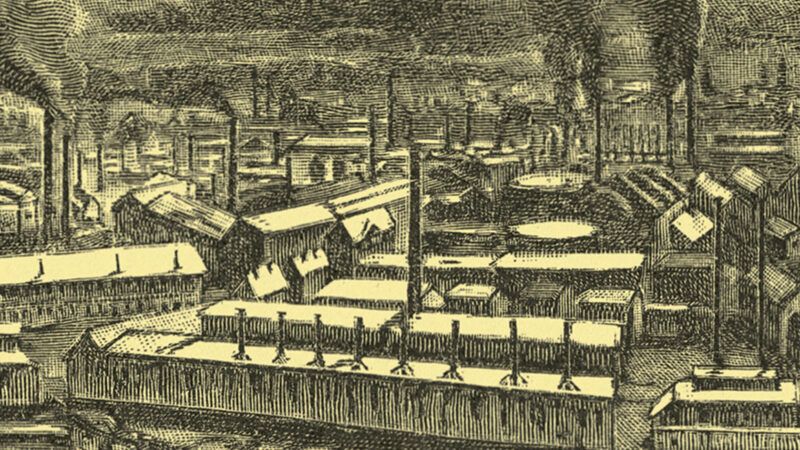The Industrial Revolutions
The new podcast charts the changes to society wrought by mechanization, mass production, and scientific advancement.

The Industrial Revolution gets a bad rap in popular histories, which generally portray it as a time of worker exploitation and environmental degradation. The nightmare only came to an end, we're told, thanks to state interventions pushed by high-minded, far-sighted reformers.
Adding a more balanced understanding to this bleak picture is the Industrial Revolutions podcast from David Broker, who charts the changes to society wrought by mechanization, mass production, and scientific advancement. The story Broker tells is wide-ranging, with episodes covering everything from railroads to romantic literature.
We learn that factory employment was dangerous, but also that it offered an escape from the exploitative guild systems of old. Cities in the 19th century, while foul by modern standards, were still magnets to immigrants attracted by the promise of higher urban wages and quality of life.
Saintly reformers of the era, be they bureaucrats or enlightened industrialists, were addressing real problems, yes. Yet Broker does a good job of showing just how invasive and paternalistic many of their schemes were. If you're interested in how human beings went from a bunch of poor farmers to a species that has enough leisure time to produce and consume podcasts, this is the show for you.
Rent Free is a weekly newsletter from Christian Britschgi on urbanism and the fight for less regulation, more housing, more property rights, and more freedom in America's cities.


Show Comments (22)